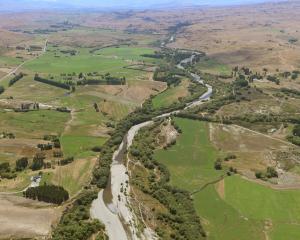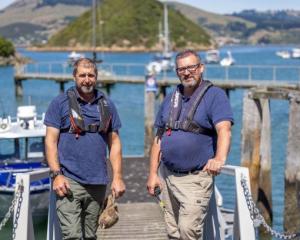Public submissions on proposed regional water plan changes in Otago are in, and it seems most correspondents are not happy with them.
A summary of the 406 submissions on the Otago Regional Council’s water permits plan change and the water quality or “omnibus” plan changes was provided by the Environmental Protection Authority this week.
The water permits plan change, which creates a resource consent process for the short term to manage expiring water permits and historic water permits granted for gold-mining while a new planning framework is developed, received 290 submissions.
It was opposed by 208 submitters, while 20 were in support and 62 did not specify.
Of the opposed submitters, 211 opposed the plan change in its entirety.
A policy change stating ‘‘water takes will not be granted consent unless the irrigated area is not increased and there is a reduction in the volume of the take’’, was mostly disagreed with.
Some suggested that the wording of the plan needed to be clearer, and some opposed the data and science used to inform the plan change and rules, the summary said.
There were, however, 12 submitters who requested that minimum flows were enforced.
Water quality, or omnibus, plan changes, incorporate two plans, one relating to waste and one to water.
These would target, among other things, sediment runoff from new subdivisions or developments, farm effluent management and good management practices to meet government expectations.
More than 100 submissions were received on these changes, and they were not as negative.
Twelve of those were related to both the water and waste plans, including submissions from the Southern District Health Board, Dunedin City Council, Otago and Central South Island Fish and Game Council, Forest & Bird, and Otago and North Otago Federated Farmers.
The changes were opposed by 49 submissions, 22 were in support, 26 supported the changes with amendments, and 20 did not specify.
Unlike the water permit plan change, support for the entire plan was listed as a key theme in the summary for the omnibus plan.
There were requests to align the plan changes with the new national policy statement for freshwater management, as well as requests for ‘‘intensive farming’’ to be changed to ‘‘winter grazing’’, the summary said.
Submitters generally disagreed with potential requirements to fence all waterways, and the requirement for sheep to be fenced from waterways.
Regional council policy and planning manager Anita Dawe said submitters could now make a further submission, either opposing or supporting another submission, until October 2.
“Anyone who indicated on their submission that they want to speak at the Environment Court hearings will be contacted directly after the close of the further submissions period,’’ Ms Dawe said.
The hearings are expected to take place late this year, or early 2021.
Comments
No wonder, the plan reads as if it was written like, and to the calibre of a 2nd year uni geology assignment. This council has compentency problems from the top to the bottom.
I couldn't give Two Hoots what the submissions say. We need to have decisions and policies made to protect our environment based on scientific evidence not by parties with financial interests.
Over two thirds of all wildlife has disappeared in the last 20years. Ten years ago the UN set 20 targets to slowdown environmental degradation. Not ONE of those targets have been met!!!
Protecting the environment has to be the number 1 priority, the cost for not doing so will be a lot more.












